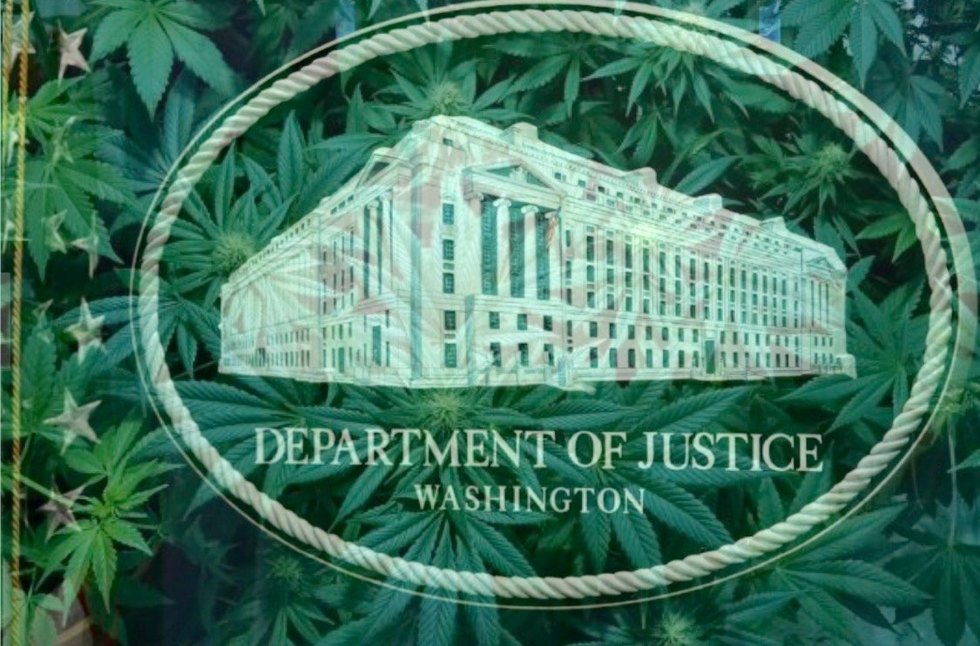When President Trump signed a bill to keep the federal budget funded through September 2017, that budget included extending the Hinchey-Rohrabacher Budget Amendment, also known as the Rohrabacher-Farr Budget Amendment. This rider has restricted the Department of Justice from spending money allocated to it in the federal budget to prevent states from implementing medical cannabis laws. Cannabis advocates have hailed the rider since 2014 when it was first introduced, and this past week, advocates again cheered and argued that the rider keeps Attorney General Jeff Sessions from waging any war on state-legal cannabis. Though worth celebrating, the budget rider is more ambiguous, than people often realize. Indeed, at least one person has said in the past few days that he does not feel the rider actually constrains federal law. That person is Donald J. Trump.
Origin of the Rohrabacher-Farr Budget Amendment
Since 2014, Representative Dana Rohrabacher, along with Representatives Sam Farr and Maurice Hinchey, has successfully introduced a budget amendment preventing the Department of Justice from using money allocated to it in the federal budget “to prevent [States with medical marijuana laws] from implementing their own State laws that authorize the use, distribution, possession, or cultivation of medical marijuana.” Though the budget rider is clearly helpful to the medical cannabis industry, two challenges have dogged it from the beginning: (1) what exactly does it prevent the DOJ from doing; and (2) Congress must enact the rider each year for its constraints on the DOJ to remain in effect. If Congress ever ceases to pass the rider, the DOJ would arguably have freer rein to spend money on combatting state medical marijuana laws, as well as recreational cannabis laws.
As for what the rider actually means, initially in 2014 the DOJ maintained the rider only prevented them from directly attacking the states themselves, such as taking Colorado or California to court to argue the CSA preempted their cannabis laws, or prosecuting state employees charged with implementing state regulation and taxation of cannabis. Others, including Representatives Rohrabacher and Farr, maintained that the rider stopped the DOJ from prosecuting individuals who complied with state marijuana laws or forfeiting property used in compliance with state marijuana laws.
Ninth Circuit Extends Protections to Individuals
Then, in August 2016 the Ninth Circuit Court of Appeals provided an answer, at least in the Ninth Circuit, in United States v. McIntosh, et al. (9th Cir. 2016) WL 4363138. The Court ruled that the Rohrabacher-Farr budget amendment did protect individuals complying with the laws of their medical marijuana state from federal prosecution, in that the rider prevented the DOJ from spending money to go after that class of people: “If the federal government prosecutes such individuals, it has prevented the state from giving practical effect to its law providing for non-prosecution of individuals….”
The Rider May Not Go As Far As We Hope
Of course, the Ninth Circuit interpretation of the Rohrabacher-Farr budget amendment is the sunny side. Other judges could interpret the budget rider differently, including the justices of the United States Supreme Court. The current form of the rider constrains the DOJ from going after medical cannabis states only, and ideally after individuals who comply with the laws of those states. The DOJ can, of course, go after adult-use cannabis systems and even those in compliance with those systems, if it chooses to. The DOJ can arguably expend resources investigating if people are obeying the laws of a medical cannabis state, and wreaking some havoc in the process.
Unfortunately President Trump has already fired a shot at the budget rider. In his signing statement for the federal budget extension, Trump said, “I will treat [the Hinchley-Rohrabacher Budget Rider] consistently with my constitutional responsibility.” With this statement, Trump seems to indicate he disapproves of, or does not feel constrained by, the budget rider. Of course, the president could merely be offering an opinion. Presidents sometimes use signing statements to opine about parts they dislike of the bill or budget that they have signed. Further, if the Trump administration disregarded the rider, they would have to explain the basis for that disregard in court and win in a case in which it was crystal clear that the rider applied.
In sum, though extending Hinchley-Rohrabacher is a victory for the cannabis community, we still need to see what policy on cannabis enforcement the Trump administration will publish, and we need to continue to pressure the federal government to stand down.
Disclaimer: This article has been prepared and published for informational purposes only and is not offered, nor should be construed, as legal advice.

